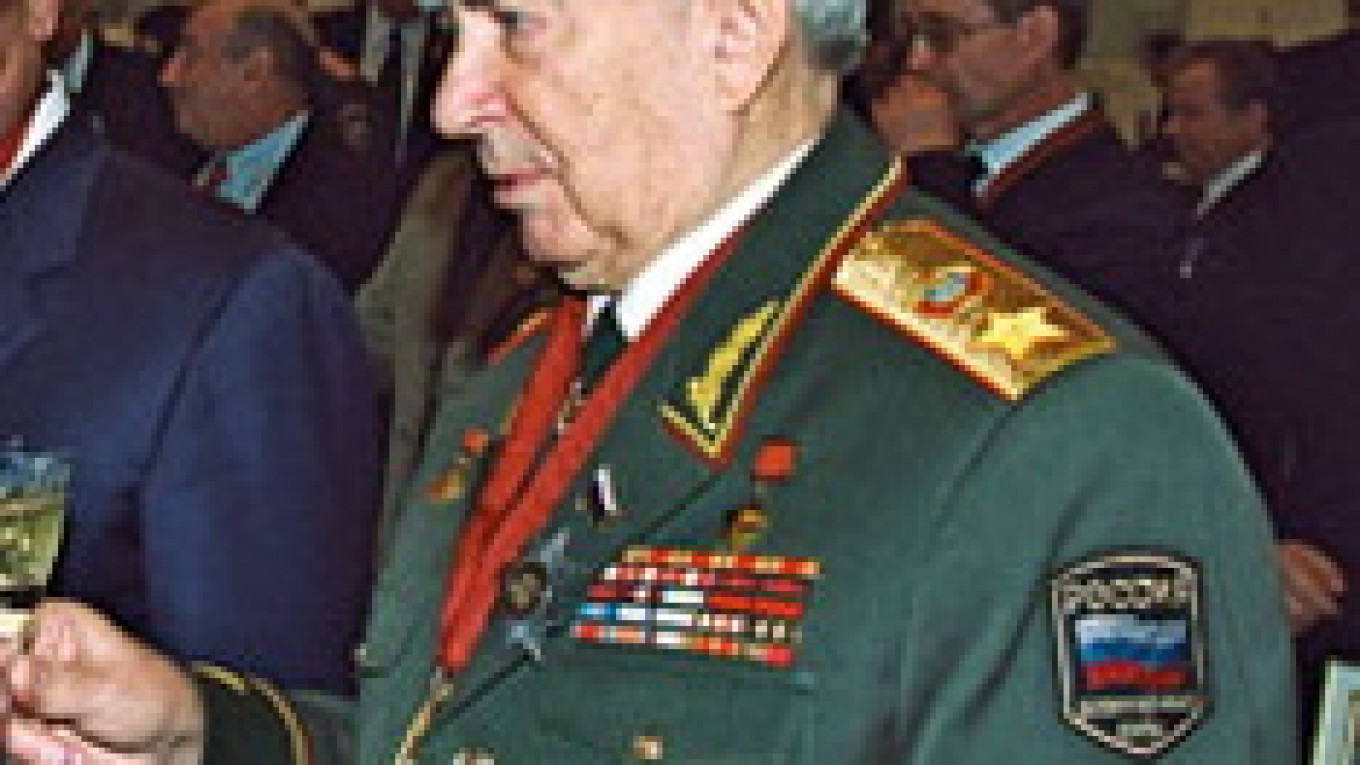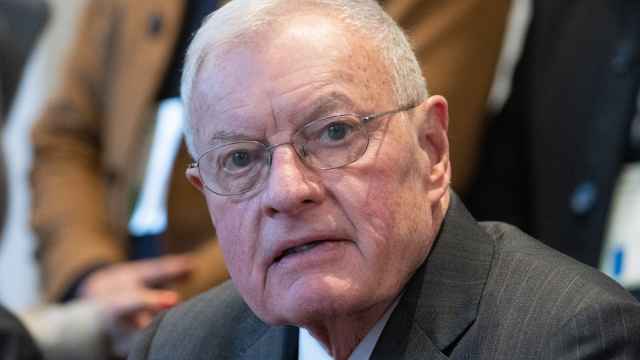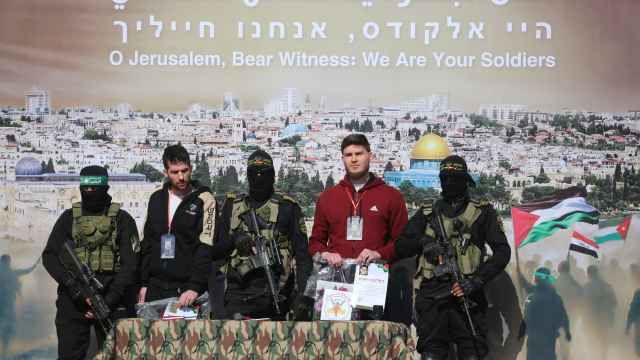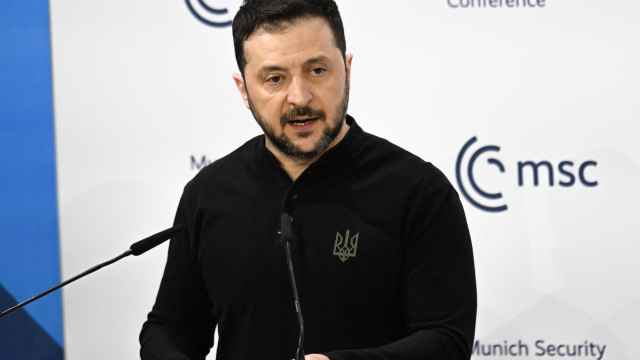Soviet Marshal Viktor Kulikov, who commanded the Warsaw Pact forces for more then 20 years, has died after a lengthy illness, the Defense Ministry said. He was 91.
His death on Tuesday leaves the country with only two Soviet marshals, Dmitry Yazov, 88, and Vasily Petrov, 96, Interfax reported,
Kulikov, who served in World War II, was a career military officer who rose to the rank of Soviet deputy defense minister in 1971.
But he is best remembered for commanding the armed forces of the Warsaw Pact — a military bloc formed to counterbalance NATO that included Eastern European countries under the Soviet umbrella — from 1977 to 1989.
It was under his watch that cracks began to appear in the Soviet bloc, with Poland imposing martial law against the Solidarity freedom movement in 1981.
The Polish Institute of National Remembrance published a conversation between Kulikov and Poland's last Communist leader, Wojciech Jaruzelski, in 2009 that indicated that Jaruzelski appealed to Kulikov to send Soviet troops into Poland to prop up the government in 1981.
But Jaruzelski, now 89, has maintained that he prevented a Soviet military intervention and a bloodbath, saying that Moscow was ready to use force to preserve its control of Poland.
Thousands of dissidents were arrested, and some 100 people were killed during the 18 months of the clampdown.
Poor health prevents Jaruzelski from standing trial on charges that he violated the law by imposing military rule and was the leader of an armed criminal group, as his military Cabinet of the time is described in the indictment.
His daughter Monika Jaruzelska, in a new book about her family titled "Comrade Miss," writes that her father's "pessimism and a sense of fear determined many decisions … including that most important one."
Kulikov was born on July 5, 1921, into a peasant family in a village in the Oryol region. He graduated from the Grozny military infantry school in 1941 and held various positions in the armored division during World War II.
He most recently served as a Soviet lawmaker and then a State Duma deputy, retiring from the Duma in 2003.
He lived in Moscow and is survived by his wife, Maria, two daughters and a number of grandchildren and great-grandchildren, RIA Novosti reported.
He is to be buried on May 31 at Moscow's Novodevichy Cemetery.
Material from The Associated Press was included in this report.
A Message from The Moscow Times:
Dear readers,
We are facing unprecedented challenges. Russia's Prosecutor General's Office has designated The Moscow Times as an "undesirable" organization, criminalizing our work and putting our staff at risk of prosecution. This follows our earlier unjust labeling as a "foreign agent."
These actions are direct attempts to silence independent journalism in Russia. The authorities claim our work "discredits the decisions of the Russian leadership." We see things differently: we strive to provide accurate, unbiased reporting on Russia.
We, the journalists of The Moscow Times, refuse to be silenced. But to continue our work, we need your help.
Your support, no matter how small, makes a world of difference. If you can, please support us monthly starting from just $2. It's quick to set up, and every contribution makes a significant impact.
By supporting The Moscow Times, you're defending open, independent journalism in the face of repression. Thank you for standing with us.
Remind me later.






